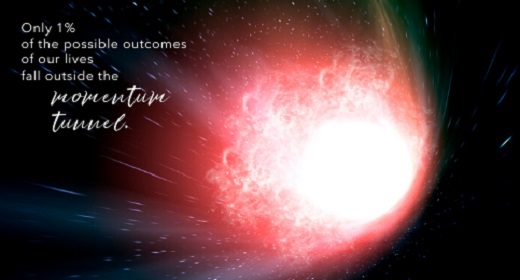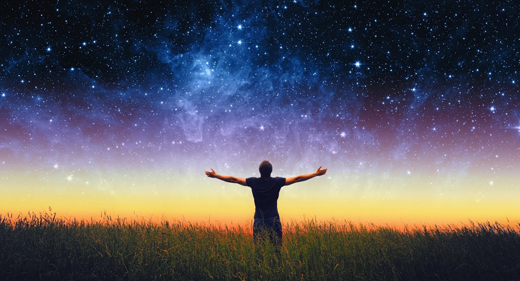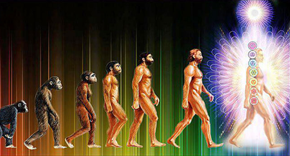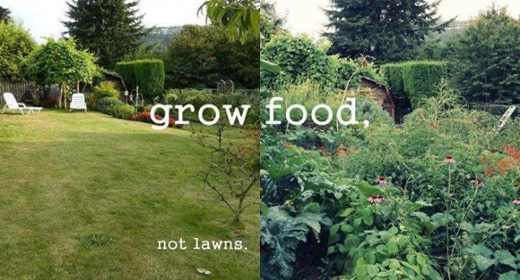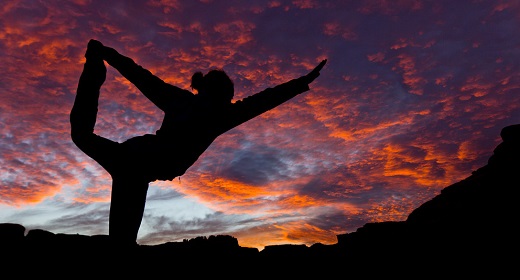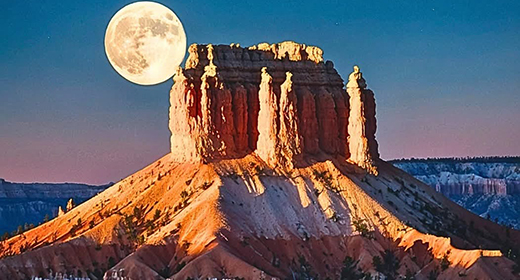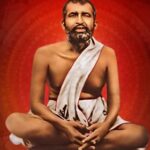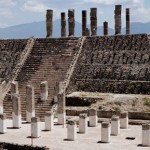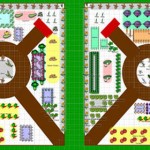Donna Quesada: Maezen, I want to thank you for being with us today. I’m just personally so happy to interview you.And I want to say on record that I will always be grateful to you! You are the one that inspired me to write my own book.
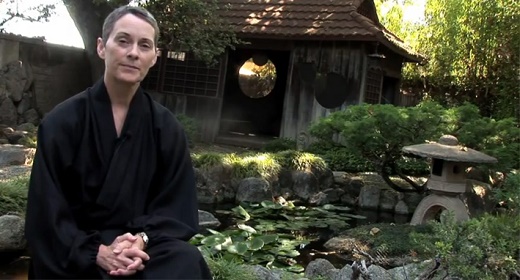
And you were always there to take a peek at it…to give me your advice…your opinion…to look it over…no matter how busy you were. So, thank you for that and thank you for being here with us.
Karen Maezen Miller: It’s my pleasure. It’s a delight to see you and get a chance to talk to you and catch up.
Donna: Thank you, thank you very much. Since this is an interview for Awaken.com, the way we start our interviews is by asking “What is Awakening?” “What does it mean to awaken?” Is there such a thing? Or, is it just another story?
Karen: Well, we have to be careful that we don’t turn it into a story. Because if we turn it into a story, we’ll never wake up. Honestly. This seems wakeful enough for me, right now. How about you?
Donna: I feel quite awake!
Karen: Are you fully present?
Donna: I’m fully present!
Karen: Yeah, sure. So, I noticed that you asked the question, “what does it mean to be awakened?” I think that is the kind of question that we need to grapple with. Because if we have an answer to that question, it’s a delusion. What we see is that we have a habit. We are conditioned to extract some kind of intellectual understanding or meaning or purpose or even goals…something intellectual out of everything we do. We have to understand it…we have to know it…we have to define and describe it…so we can feel secure that we actually have something. And, as I’m describing that, I think you know what I’m pointing to. That’s upside down! That’s wrong headed! So, I suppose the answer to the question, What is the meaning of awakening, is…there’s no meaning! And to be comfortable and rest with confidence and peace of mind in that not knowing.
But just because it’s so prevalent, the question What does it mean? is what every seeker asks. Everyone who begins a spiritual practice or path, suspects that there will be at the end of this journey some knowing. The meaning will be clear. So, in the practice that you and I have practiced in—the Zen tradition—this question, What is the meaning? or What is the way? or How? or Why? or What?…That question is asked hundreds of hundreds of hundreds of times in all of our teaching stories, which are called koans. And in the collection that I’ve practiced with, that very question…that probing…that desperate penetrating question is asked over 100 times. And so, as a student, you confront it over a hundred times. And then you’ll try to understand the answers that are given.
In one case…this is a famous koan where a student comes to Joshu, and he says “what is the meaning of Buddha nature? What is the absolute truth?” And he says “Mu.” That’s a famous teaching story. In another one he says, “The Oak Tree in the garden.” And the intellectual mind is supposed to really chew on those questions, trying to find some comfortable place where we think we’ve grasped it. But it’s really pointing to something else entirely. The essence of what we are is beyond our understanding. And it’s beyond any name or definition. It is simply what we are. And it’s manifest in this moment. It’s always manifest as the present moment of your life.
Donna: And so we get in our own way when we create some sort of a “goodie” to be chasing…and those koans are setting us up to look for the goodie. But it’s almost showing us that the very act of looking for the goodie is the way we step one foot in front of the other and trip ourselves.
Karen: Exactly. So, what the master is always doing, is pulling out the rug from underneath that question. There is another story where someone comes in…and every student…my teacher is always quick to say “Let’s not…” This isn’t to diminish or degrade all the well meaning students who come in to see the teacher… After all, those are the ones that are really sincere. And in a way, fearless…to go in with a question. In a way, testing both their own understanding and the teacher. So, only the best student will ask the question. So, the student comes in and says “When my mind is clear…when I’m awake…” We might say, “What then?” The student asks…cause that’s another way that we defeat ourselves….by saying, “What then?”…and, “What does it look like?”…and, “What happens next?” And the teacher says, “Set it down.” And he says, “What if I set it down?”…and he says, “Well, kick it out!” And he says, “What if I kick it out?” And the teacher says, “Than haul it out!” In other words, even the question has to be removed. If you hold on to the question…the doubt…you are confused.
Donna: So it’s in a sort of surrendering to not knowing and to not getting a goodie and to not having a goal? And so, being awake is more of a way of living than something that you get?
Karen: Yes.
Donna: Which is why you asked me, “Are you present right now?”…because as long as I’m present, I’m awake, right now. And I don’t have to go looking for it as a thing, as a goodie…as something to attain.
Karen: It’s a fundamental misunderstanding. We practice in order to correct this misunderstanding that we have. And the misunderstanding can be described in many ways. Essentially, we are separating from our lives. We think that our life is outside of ourselves. Or that there is some other place to go. Some other thing. We are objectifying. Even our practice…we objectify it. In part, by calling it “a practice.” Maezumi Roshi used to say, “Your life is your practice,” and that means, not your idea of your life…or, a picture of your life…any notion at all that you have about your life or who you are. Even an image or an understanding or an identification of who and what you are is inadequate. It’s limited. What you are is the universe.
Donna: And yet, there is something special about the practice of meditation. Something…I was looking at your book again, Hand Wash Cold…and Maezen is the author of three wonderful books, Mama Zen, Hand Wash Cold, which I think is my favorite…even though, before we started recording, you were saying that Paradise in Plain Sight, you feel, is the best book. Why is that? I want to take a little detour on that because I found that so fascinating. I’m so in love with Hand Wash Cold. What is it about Paradise in plain sight that you would recommend first?…or that you feel represents your best work?
Karen: Hmm. You know, I haven’t…I say I love it…it’s my favorite…it’s really kind of like an intuitive feeling. And it’s not based on any kind of an evaluation. I think it is the most inspirational. And it truly reflects my practice and my tradition. The tradition in which we practice. So in a way, it’s an homage to my teacher…and his teacher…and his teacher before him. And I think, for myself, I just found there was so much clarity in it. Even for me. And oddly enough, it was never a book I wanted to write. Or even had in mind that I would write. I thought I should write something more important. And I kept trying to…you know how it is…you’re in that mode…you’re trying to fashion a package…a sense of what it is you are going to produce…and I kept missing the mark. And I would get very enthusiastic about, well I’m going to write about this…and I’d send it off to my publisher…the agent…and it would come back and I’d be very sheepish. Finally, my agent who…bless his heart…is so faithful, even though I’m so unproductive. He said, “why don’t you just write a book like Karen Maezen Miller would write? Stop trying to be some other kind of writer.”
Donna: Well, with three wonderful books, I wouldn’t say you are unproductive! In fact, before I derailed us into this, I was going to say, “your life is your practice, yet, there is something special about meditation.” And when I was re-reading some of my favorite passages…because as you can see, it’s all flagged up!…You say, “We meditate because there’s a six-foot flame dancing on top of our heads.” And I just want to continue…
“It has made us mighty uncomfortable for quite some time up there. We try to pretend otherwise, but have you noticed? We have a fire on our heads! It keeps crossing the containment lines! The temperature shoots up and we prance about, panicked, frantic, holding our breath lest we stoke the inferno, but it rages anyway. About the time our eyebrows singe, we might heed the call of rescue.”
And you close that passage by saying that “meditation is the option of having no other options…”
Karen: Yes.
Donna: And so our life is our practice, but there is something very powerful about the act of sitting on the cushion.
Karen: Absolutely. It’s essential. And the reason it is essential is that we think our life is happening right here. We really do think that life is what we think about our lives. Our feelings. Our disappointments. Our resentments. Our regrets. The past. The Future. We really think our life is confined in here and what is happening out here is just getting in the way. It’s just troublesome. It’s just inconvenient or unwanted. And that is inside out and upside down. This right here is your life. And this is where your practice is. You have to sit on a cushion to realize that what you are doing inside of here is just re-running your nightmare.
Donna: And the nightmare is the flame?
Karen: Yeah. The Fury. The Anger. The Hell. That’s the flame. You can’t stand it. The moment you can’t stand your own life for another minute. When I started my practice, I had no interest in spirituality. I wasn’t the religious type. I wasn’t a deep thinker. I had a flame on my head! I was miserable. So for me, it’s about what it means to awaken. Or, what does it mean to have a spiritual life? Or, what do I get in exchange for all of my purity? My saintliness. It was never about that. It was about, How do I stay alive?
Donna: So would you say…this is something else that I think about a lot…well, I try not to think but it creeps in…
Karen: It’s ok to think!
Donna: Do you have to get to that place of desperation? Is that what ignites the spiritual path? You read Eckhart Tolle’s story… and he almost killed himself. And in your book, you talk about that moment in the garage. Do you have to get to that place where you are so down and out? In fact, speaking of Tolle, he talks about…what does he call it?…a “limit situation.” Where you get to a place where you’ve come up across your limit and it bursts the ego. Which sounds a bit like Zen talk. And that’s the point that drives us to readiness when we’re finally able to say “I give up…I surrender…I can’t stand this any more.” Do we have to get to that place?
Karen: It’s scary, isn’t it? I’m not going to tell anybody that they have to cross that threshold. I’m just going to tell you that for me…I don’t think you pay it any attention. As long as you still have another escape route. As long as you have another job. Another trip to Trader Joe’s. As long as there is something in the refrigerator. As long as you can get up in the morning. As long as you still have a functioning liver. If you consider all the ways we are able to sicken ourselves…you have to exhaust those ways. You have to be sick of your sickness. That is something that my teacher would say over and over again.
What does that look like? It doesn’t look like self improvement. I’ll tell you that. Because there are so many ways that you can set out to improve yourself in a week or a weekend. Or, maybe even in a month before bikini season. There are so many ways that you can mount some self improvement system, that as long as you are serving yourself, your ego, in that pursuit…it will fail. It will not deliver to you the kind of peace and respite that you are seeking. It’s a kind of a precarious situation because what I realized, frankly…we can be very cynical and we’re all neurotic. But we have to reach the point where we are not yet ready to die…but we don’t really know how to live and survive in our lives before we will really take the risk of doing something as radical as sitting down and doing nothing. That’s radical.


